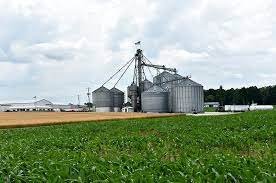Climate change is a global phenomenon that has impacted various sectors, including agriculture. India is one of the world’s leading agricultural producers, with vast production of wheat, rice, and cotton. According to the World Bank, India’s agricultural sector is responsible for the largest herd of buffaloes, the largest area under wheat, rice, and cotton, and is the world’s leading producer of wheat, milk, and spices. However, climate change has adversely affected India’s agricultural yields, leading to short-term and long-term consequences.
A new study led by the Carl R Woese Institute for Genomic Biology at the University of Illinois at Urbana-Champaign has explored how climate change impacts Indian crops in the long term. The study, published in the Agricultural Economics journal, provides new insights into the effects of climate change on the yields of major Indian crops, including rice, wheat, and maize.
While short-term changes in weather patterns, such as sudden thunderstorms, are common, long-term differences, such as prolonged periods of heat waves, are the hallmarks of climate change. The researchers used 60-year data sets on temperature, the length of the growing season, precipitation, and crop yield to create different models for short-term and long-term responses of crops. They aimed to determine if farmers were adapting to the long-term changes in climate change and if the short-term deviations in extreme temperature and precipitation were significant when compared to their long-term averages.
The study found that farmers were able to adapt to changes in temperature for rice and maize but not wheat. It also found that increased precipitation enhanced rice yield, but adversely impacted wheat and maize yields. The researchers noted that farmers customize their strategies across different regions and crops, with heat-prone districts faring better to higher temperatures than districts in colder regions. The study also showed that farmers who worked in less productive areas and were at the lower tail of distribution faced more significant adverse effects than those who worked in areas with higher yields.
The study suggests that farmers can adapt to climate change in two ways – by changing their management practices and by changing the varieties of crops grown. Action can be taken to improve seed varieties and educate farmers on how they can adapt to changing climates.
While the study found that crops were adapting to the negative impacts of climate change, the researchers emphasized that the effects of climate change differ across crops. It is important to take a holistic view of all the various ways in which changing climate affects yield, and adapting crops to particular dimensions of climate change may not be sufficient.
The findings of the study are part of the researchers’ efforts to build understanding across different countries. The study showed that crops in both the United States and India are adapting to climate change despite its negative impact. The researchers emphasized the need for further research and collaborative efforts to mitigate the effects of climate change on agriculture.


